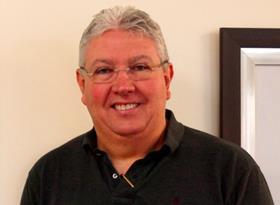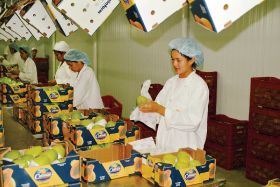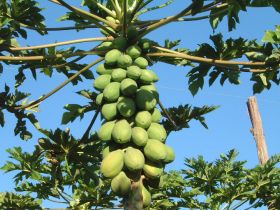
It is 22 years since HLB started importing Brazilian papayas into Europe. Since then the company has become leading supplier of tropical fruits to Europe and the US. How has the produce industry evolved during that time?
Homero Levy de Barros: One of the big changes is that companies understand that it is no longer enough simply to provide new and exotic products unless they can guarantee the eatingquality that consumers have come to expect. With a wider selection of fruits to choose from today than ever before, a consumer who is not satisfied with a particular product will not repeat that purchase. They may switch to another brand, or they may decide to never buy that particular product again. Our goal is to ensure consumers are happy with our offer and keep them coming back for more.
In what other ways have consumer expectations changed?
HLdB: Consumers today demand flavourful, succulent fruits. We're seeing greater demand for airfreighted products rather than those arriving by sea that have had to be cropped greener and are sold without the sufficient sugar content and flavour. The US still lags behind Europe, where consumers are generally prepared to pay a fair price for a fresher product that has been tree ripened and arrived by air. At the end of the day, all we want is the pleasure of enjoying the food we eat.
What about the way you communicate with your customers – how has this evolved with the advent of new media?
HLdB: Today’s consumer wants to know where a product comes from and who is behind it. Since the verybeginning, we understoodthat without education on why and how to eat exotic fruits we would not be able to expand our sales beyond the ethnic populations who traditionally eat them or tourists that have had the chance to taste the tree-ripened version while on holiday. A brand has to give the consumer the security of knowing that it stands for quality and reliability, but you can never underestimate the importance of continuous education on why and how people should eat our fruit. Weencourage customers to visit our Facebook and YouTube pages and to follow us on Twitter, where we share interesting information on the products we offer.
Have you found it challenging over the years sourcing sufficient volumes for your overseas programmes when domestic demand in Brazil is so strong?
HLdB: We are fortunate to work with growers who understand how difficult it is to gain the trust of retailers. We’re constantly striving toimprove our business model by reducing costs and increasing efficiency in order to better serve our clients. But we are aware that no grower,regardless of how committed they are to exports, can work with sustained losses. We do our utmost to defend the interests of our producers, pointing out to clients that sometimes it is necessary to adjust pricing in order to retain those exceptional growers and not lose them to the domestic market.
But yes, it is a challenge when the internal market in Brazil is so strong that prices that are sometimes much higher than those paid overseas. Many growers have abandoned papaya cultivation altogether because of low returns and switched instead to coffee or other less risky crops.
 What have been the highs and lows of your career so far?
What have been the highs and lows of your career so far?
HLdB: I am a very optimistic person by nature. During the low moments I think back to time when I emigrated with my wife and two small children from Brazil to Germany. In spite of having no knowledge of the produce industry or the German language I was able to build a successful papaya business, so I’m glad I didn’t listen to the feedback from some of the retailers I visited who said that European consumers would not be interested in ready-to-eat papayas. I feel proud when I see how the market has developed since then.
Finally, how do you see the market for tropical fruit evolving in the future? What niches are still left to develop?
HLdB: Just ask any person who’s not from the tropics if theyregularlyeat papayas or mangoes and the answer demonstrates us how much work we still have ahead of us. In Europe and in North America, less than 15 per cent of the population regularly eats papayas. Thirty years ago you could not give away mangoes. So I feel we are justbeginning our task of educating consumers about the pleasures of eating a tree-ripened, juicy papaya or mango.



